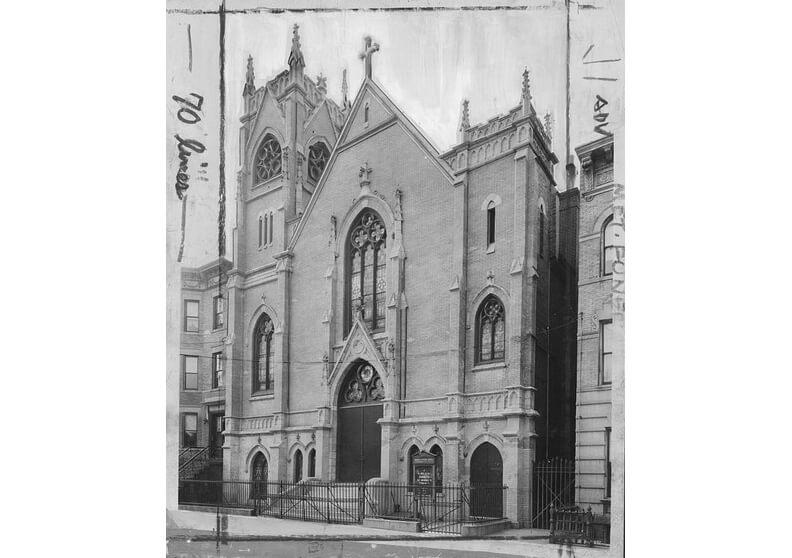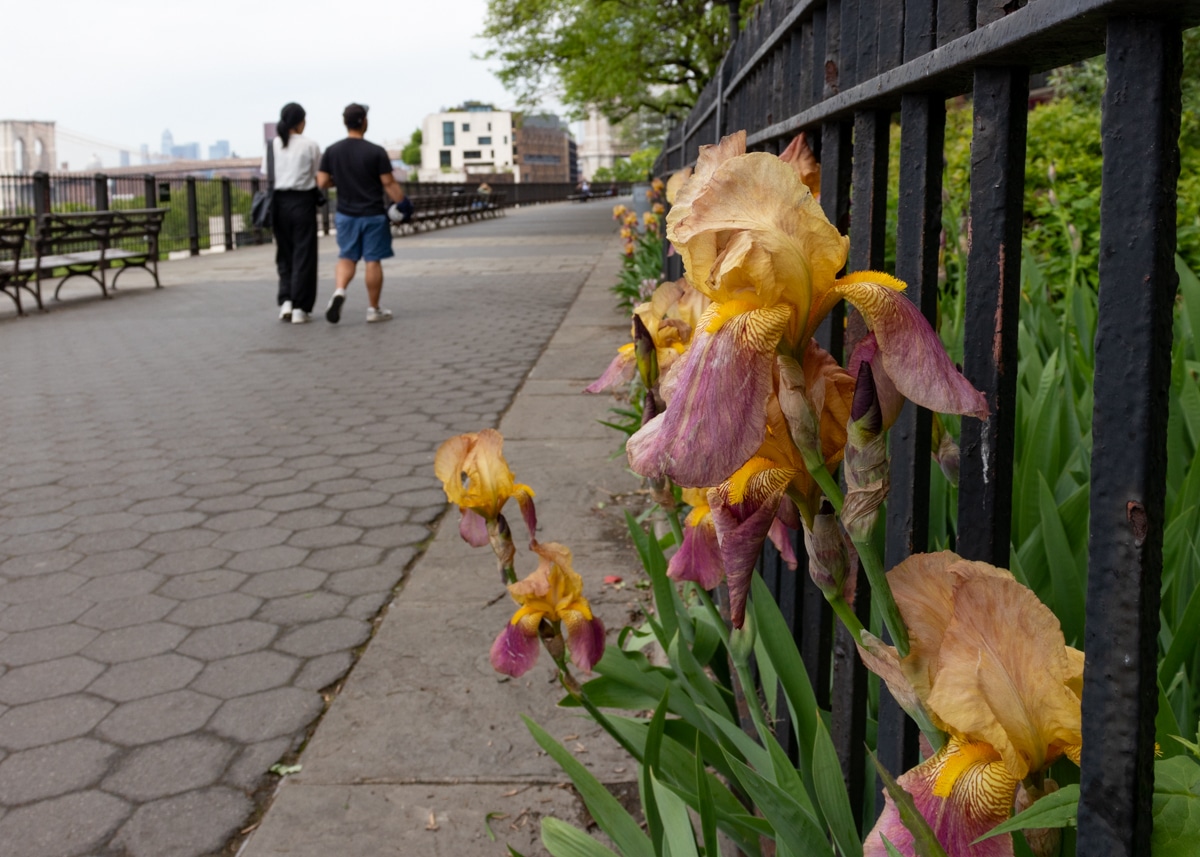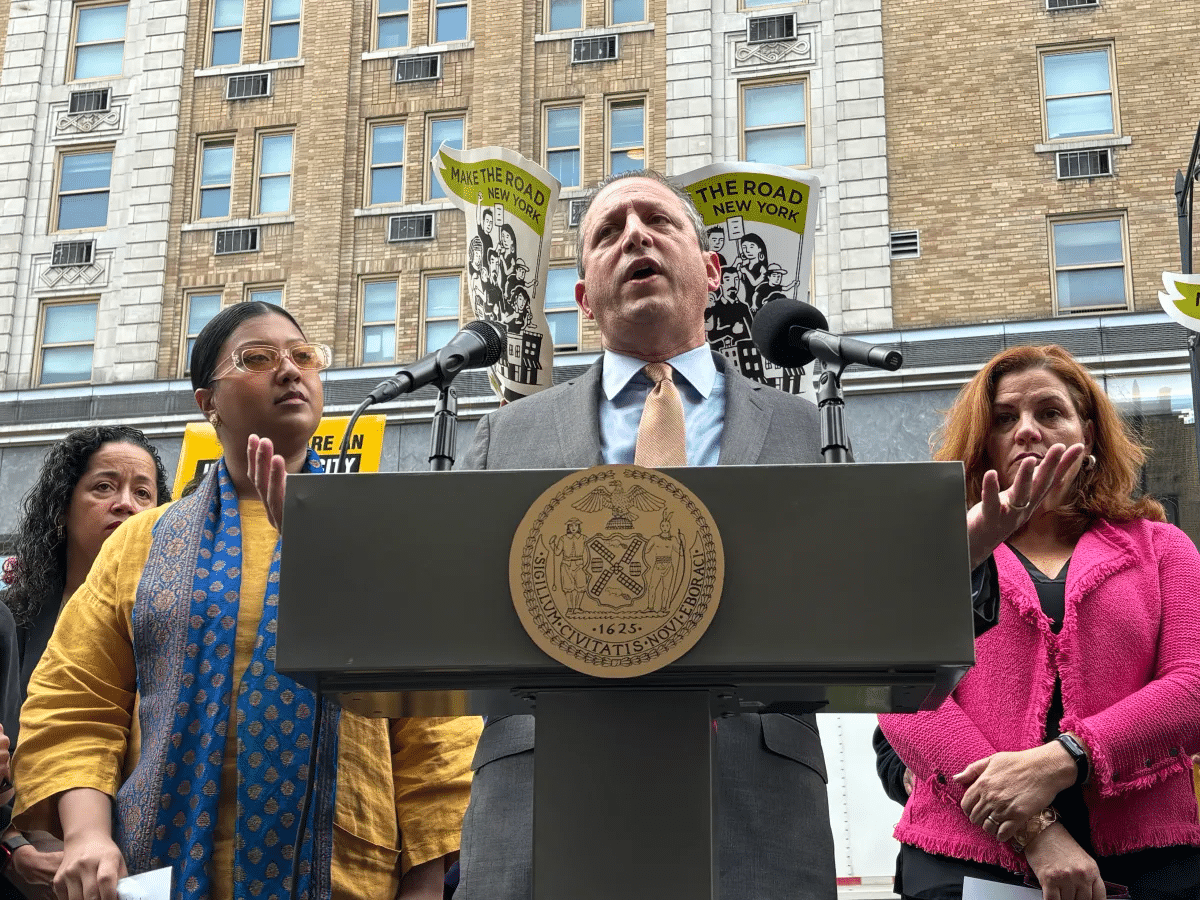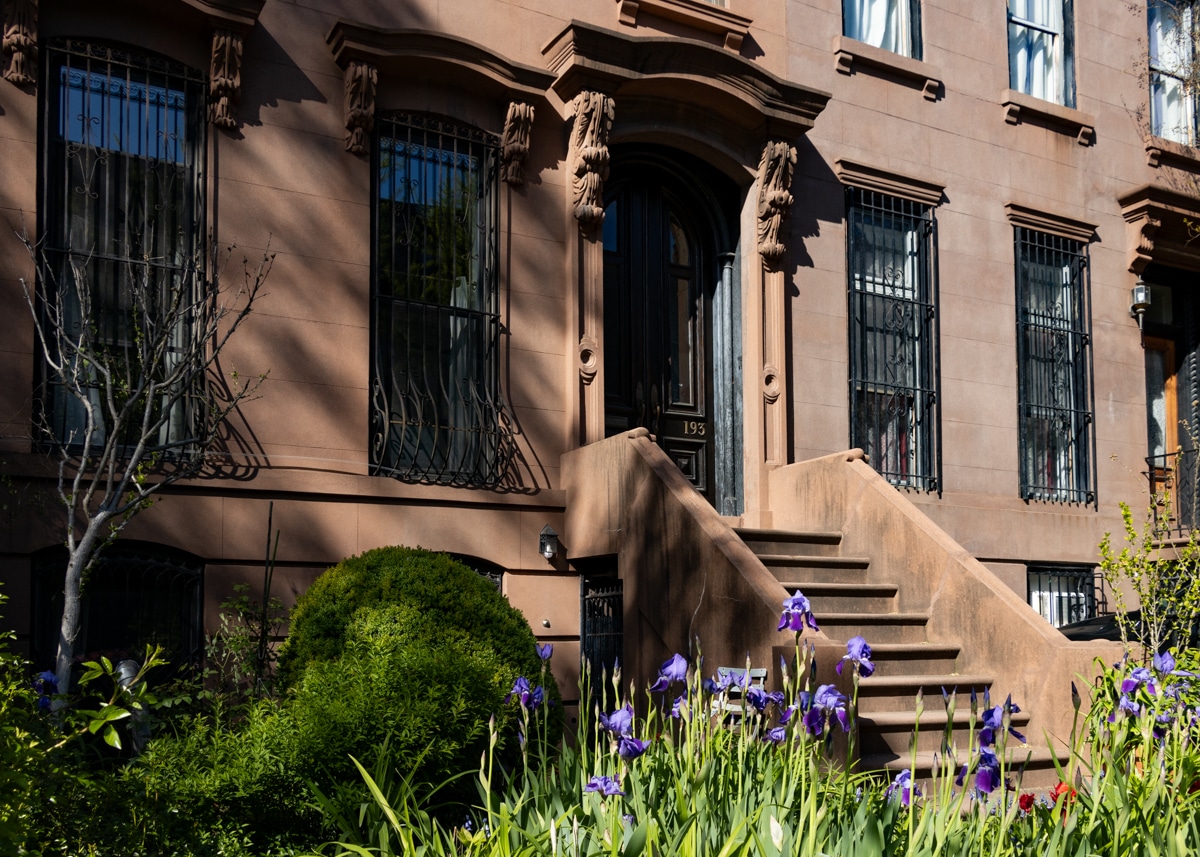With Funding Pulled, Greenpoint's Park Church Co-op Faces Unexpected Closure
Greenpoint’s Park Church Co-op is scheduled to close its doors next June after the local Lutheran governing body abruptly pulled funding for the congregation.

The church in 2014. Photo by Christopher Bride for PropertyShark
Greenpoint’s Park Church Co-op is scheduled to close its doors next June after the local Lutheran governing body abruptly pulled funding for the congregation.
The Metropolitan New York Synod, a chapter of the national Evangelical Lutheran Church of America, first told the Park’s pastor, Jacob Simpson, that they would be reducing their funding for the church in April, he said. In August, they said they would be ending their contributions altogether by July 2022 — and then, in October, moved that date up to January 2022.
“Their rationale has been several things, and I think their rationale is kind of where the frustration lies, both for Park and myself,” Simpson said. “It’s sustainability, it’s not enough people, we do a lot with the building but not enough that benefits the church, the building is not in great shape … it’s a moving target.”
Located at 129 Russell Street, close to McGolrick Park, the church was designed by Manhattan firm Dodge & Morrison and its cornerstone was laid in 1902. It is unprotected by landmarking and could be demolished to make way for an apartment building.
Park Church Co-op keeps on trucking
The Russell Street church was founded in 1899 as the Evangelical Lutheran Church of the Messiah and operated under that name until 2015, when it closed after years of dwindling membership.
Former pastor Amy Kienzle was assigned to Messiah in 2013 and tried to keep the church going in partnership with a nearby Lutheran congregation. In 2015, she applied for and received grant funding from the Synod to try to revitalize the church, and gave it a new name – Park Church Co-Op.

That funding ran out in early 2018, Kienzle said in an oral history recorded by the Brooklyn Public Library later that year, and it seemed that the Synod was prepared to close the church at that time, but an outpouring of support from the community seemed to change their minds, and the church was in what Kienzle called a “probationary” period.
By early 2019, amid leadership changes at the Synod, Kienzle had left the congregation after funding for her position ran out, and members were trying to keep the church afloat on their own, said Concetta Abbate, a longtime music teacher at the church.
“I feel like we kind of fell on the sidelines, and they just left us alone for like six months,” she said. “We could kind of just do our thing, and we kind of kept the church services going on Sundays. People would take turns leading the services, and sometimes we would hire a student from Columbia Divinity to come and do a service.”
They kept the other programming, like music and art classes, running alongside the services, she said. When the tumult at the Synod finally settled, and leadership realized what was going on at Park, the newly-elected Bishop Paul Egensteiner visited the piecemeal parish.
“He came to the church and we had like 60 people come and meet him, and of course everyone loves the place, and he was really impressed and so he pushed to get another five-year grant to get another pastor to give us another five years on that grant,” Abbate said.
Pastor Simpson arrived in June 2020, moving with his family from White Plains. At the time, he said, the Synod told him Park would be on a five-year “glide path,” and would be receiving 15 percent less funding each fiscal year for five years. Most of that funding is used to pay Simpson’s salary.
Then came the decision to shutter the church next year. The first letter from the Synod said they would be cutting Simpson’s salary in January, Abbate said. She immediately wrote to the bishop, asking if that meant they were planning to close the church too.
“He didn’t write me back for, like, a while, and then he finally wrote me back a short email that was like, ‘You’ll be getting more information from the Synod council,’” she said. “It’s like, you feel your stomach turn.”
A second letter laid out the reasons for the council’s decision to close the church, including “hundreds of thousands of dollars” in building repairs, though Abbate said the most pressing need, to fix the church’s foundation, which was damaged during flooding from Hurricane Ida, is expected to cost only $15,000.
Simpson was never given a clear idea of what “sustainability” would mean for the Synod, he said.
“First it was worded sacrament, which they take to mean attendance, but then it comes down to finances, and I think it just comes down to money,” he said. “In their mind, we are not on a successful path to sustainability, and the cost of the building, combined with a small giving base, just makes it, like, unlikely in their mind that we would get to where we need to be.”
Park’s hybrid services have a regular attendance of about 35 people, Simpson said.
The team was able to negotiate an agreement to stay in the building until next June, because they had existing contracts with their partner programs, including an early-learning center.
“It’s understandable that we’re in a transitional state, we’re working toward financial independence with the five-year plan,” Abbate said. “That’s like, what was always understood, that we were on that track.”
In a statement, Roberto Lara, assistant to the Bishop at Metropolitan New York Synod, said that the office of the bishop has been “committed” to supporting Park Church, but that the Synod Council, a separate body, has to approve funding each year.
“The Synod Council will bring Park Church’s funding to a conclusion based on several evaluations, including concerns regarding the physicality of the building,” Lara said. “This decision saddens us, but the well-being of the members of this faith community is a priority of our church, and they are welcomed to join other Lutheran congregations from our synod around the area.”
A place for community
Heidi Vanderlee has lived in Greenpoint for 14 years and had always admired Park Church Co-op’s building and the pride flag they flew out front. A few years ago, she was looking for a meeting space for a recovery support group she was working with, and found a warm welcome at the church.
A different group still meets there every week, she said. After her introduction to the church, she’s come to appreciate all the other good they do in the neighborhood.
“My band actually played an acoustic set on the steps of the church this past summer, and it was lovely, and I know that they do shows there all the time, they’ve expanded the arts program,” she said.

Park Church Co-Op/Facebook
The church also partnered with an organization now known as Breaking Ground to open a drop-in shelter after a number of homeless people died due to freezing temperatures in neighboring McGolrick Park.
“There are so many churches in this neighborhood, and none of them had done anything like that, and I don’t ever hear from any of the other churches,” she said. “I think that the way Pastor Jake tries to minister to the neighborhood is not necessarily just through scripture and services. It’s like, ‘What is the point of a church? What are we supposed to be doing? As Christians, we’re supposed to be helping people, and setting a good example, basically.’”
Mike Nowotarski started an online petition in a bid to convince the Synod to give Park more time.
More than 1,000 people have signed the petition since it was launched in October, adding their stories of bringing their children to preschool and art programs at the church and lamenting the loss of the space.
Nowotarski started attending services at Park last winter, when in-person services started up again. After growing up Catholic, he was searching for a church that matched his values. Over the summer, he started up the outdoor summer concert series on the church steps, making a point to find LGBTQ+ and underrepresented performers. At the end of the summer, Park threw a street fair with vendors, performances, and food to celebrate.
“I would say it’s the first time in my life where I feel like I belong at the church that I’m going to, I think,” he said. “I feel like the way [Simpson] ties social movements to a greater purpose, and to a greater purpose, and to a sense of spirituality, I think is incredibly powerful. I don’t think it’s right that, in this country, like, the right has a monopoly on spirituality.”
The Synod’s back-and-forth on issuing the first grant, allowing it to end, and then changing their plans for Park has created a sense of instability at the church, he said.
“In essence, they’ve been trying to kick out the congregation and flip the building since they took it over,” he said. “We really believe that that is a mistake, because what has happened is the church has been enormously successful in rebuilding its community.”
A history of closures
The New York Synod has shuttered and sold several Lutheran churches in and around New York City in the last decade. In 2019, St. Peter’s Lutheran Church in the Bronx was forced to close, and to close the food pantry it operated after years of fundraising and legal efforts to stay up and running. According to council meeting minutes from last September, the Synod is still struggling to sell the building after receiving a “significantly reduced” offer from a prospective buyer.
Another Bronx church, Kingsbridge Evangelical Lutheran, voted to leave the ELCA after the organization announced plans to close the church in 2015, according to The Riverdale Press, but a court decided the Synod ultimately had control of the properties, which were then listed for sale.

In 2008, the Synod sold the closed Saint Peter’s Church on Skillman Avenue for $4 million, paving the way for new apartments.
In that same meeting, Renée Wicklund, the Synod council’s vice president, noted that after “lengthy and expensive litigation,” the site of the former Eltingville Lutheran Church and School on Staten Island is ready to be listed for sale. The Synod took over the church in 2016 on the recommendation of the ELCA after reports of financial mismanagement by church leaders, SILive reported at the time. The church first tried unsuccessfully to disaffiliate with the ECLA, then took to court in an attempt to retain control over the building, but courts ruled in favor of the Synod. The school’s closure in 2019 left families scrambling for alternatives.
“We just want them to stop, we just want them to give us a chance,” Nowotarski said. “Because, long term, like, if they flip all the buildings, if they just sell all the churches, what are they? If all they do is take over buildings and flip them, you’re not a church anymore. And at some point there will be no more churches to flip. That’s why we want them to invest in our community.”
With more time, Abbate believes Park could get on track to keeping themselves afloat without help, given the momentum of the church’s programs and growing base of supporters, including some who give monthly via the church’s WithFriends page, but it’s impossible on such short notice. Even though they’ve been given permission to stay open until June, the Synod expects the church to pay Simpson’s full salary, she said.
“I think we have like, $80,000 in our savings account, the church congregation,” she said. “That almost completely depletes it. Not only are we losing the building, but they’re also setting up these parameters that destroy the congregation.”
Come June, Simpson said, his future — and the future of the church — is a “massive unknown.”
“I think Park has a really good spirit of ministry, and I think, I hope and pray, they do all they can to figure out something that makes them get up, keep going. Because they have a lot to offer.”
— Additional reporting by Susan De Vries.
Editor’s note: A version of this story originally ran in Brooklyn Paper. Click here to see the original story.
Related Stories
- Clinton Hill Parish House Demolished, 17-Story Tower to Rise Above Landmarked Church
- Williamsburg Residential Building With Sky Bridge to Landmarked Church Nears Completion
- Crown Heights Church Proposes Controversial Mixed-Income Housing in Landmark District
Email tips@brownstoner.com with further comments, questions or tips. Follow Brownstoner on Twitter and Instagram, and like us on Facebook.









What's Your Take? Leave a Comment